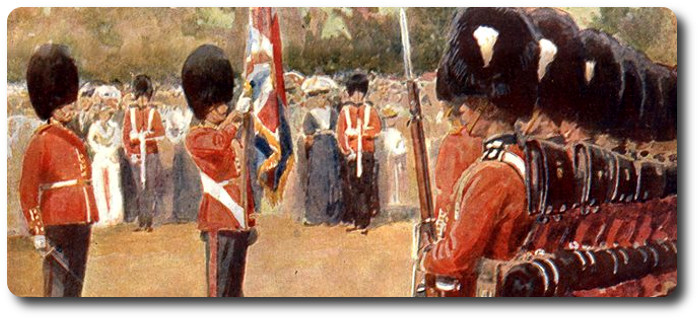Topic: Officers

Command and Rank of Officers (1859)
The Queen's Regulations and Orders for the Army, Horse-Guards, 1st December, 1859
1. All commands belong to the senior officers, whether of cavalry, artillery, engineers, infantry, or marines. In case two commissions of the same date interfere, a retrospect is to be had to former commissions.
2. When regiments or detachments are united, whether in camp, garrison, or quarters, the senior officer, either by brevet or otherwise, is to command the whole.
3. Officers serving on the staff in the capacity of Brigadier-Generals are to take rank and precedence from their commissions as Colonels in the army, not from the dates of their appointments as Brigadiers.
4. Officers who obtained the rank of Colonel prior to the 20th June 1854, are not to be included in the roster of field officers,—a distinct duty will generally be assigned to them as Colonels; but Colonels promoted on, and subsequent to that day, will continue to do duty as field officers until after five years from the dates of their commissions as Colonels.
5. Captains having the brevet rank of field officers are to do duty as field officers in camp and garrison but they are to perform all regimental duties according to their regimental rank. Officers employed as Brigade Majors, if of the rank of Captain, are to take rank and precedence next after regimental field officers in the brigade or garrison in which they are serving.
6. Officers employed as Town or Fort Majors, if under the rank of Captains, are to take rank and precedence as the junior Captains in the garrison in which they are serving.
7. Second Lieutenants take rank of Cornets and Ensigns.
8. Officers relinquishing their regimental commissions are not to be considered as retaining any rank in the service either from them or from any brevet commission they may have held, except in cases which may be exempted from this regulation by the Sovereign's especial authority.
9. Field officers who have retired from the service by the sale of their commissions, and are desirous of having their names restored to, and retained in the Army List in italics, are, in their applications to the Military Secretary for this privilege, to state the date of their retirement, and that of their last commission, brevet as well as regimental.
10. Officers of Her Majesty's Indian Forces, whose commissions are signed by authorities duly deputed to do so by Her Majesty, have rank and precedence with officers of the regular army, according to the dates of their commissions, in all parts of Her Majesty's dominions and elsewhere.
11. When officers, having permanent rank, serve with those who have only temporary rank, and their commissions are of the same date, the officers having permanent rank take precedence of those having temporary rank.
12. The following are the rules by which the relative rank of the officers of the regular forces, marines, militia, yeomanry cavalry, and volunteer corps, is to be determined:
1. Officers of the regular and marine forces command the officers of equal degree belonging to other branches of the military service.
2. Officers of fencible and militia regiments rank together according to the dates of their respective commissions.
3. Officers of militia, having also rank in the regular service, are not permitted, whilst serving in the militia, to avail themselves of any other rank than that which they hold by virtue of their militia commissions.
4. Field officers of the regular, marine, fencible, and militia forces, take rank above all officers of yeomanry and volunteer corps; captains, subalterns, and staff officers of yeomanry and volunteers corps, rank as juniors of their respective ranks, with officers of the regular, fencible, and militia forces.
13. Corporals of the regiments of Life-Guards, and of the Royal regiment of Horse-Guards, rank with Serjeants of cavalry and infantry.
14. Bombardiers of the Royal regiment of artillery, and 2nd corporals of the Royal engineers, rank as corporals of cavalry and infantry; corporals of the Royal artillery and Royal engineers take precedence with corporals of cavalry and infantry according to the date of their appointment as bombardiers, or 2nd corporals.

